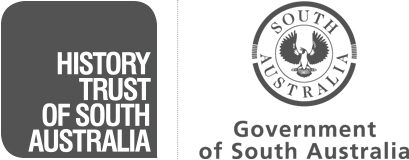National attention was focused on the conduct of justice in South Australia in December 1958 when an Aboriginal, Rupert Max Stuart, was charged with the rape and murder of a nine-year-old girl near Ceduna in the state’s far west. Although pleading not guilty, alleging that police had used threats of violence to extract his confession, Stuart was convicted and sentenced to be hanged.
After an appeal to the Full Court was dismissed, Stuart convinced Catholic prison chaplain Father Thomas Dixon of his innocence. Theodor Strehlow, who spoke with Stuart in his native Arrernte, did not believe that Stuart could have composed the confession he had signed. While an appeal to the High Court failed, the court expressed anxiety about the conduct of Stuart’s trial. An appeal to the Privy Council also failed.
In July 1959 public disquiet, including a plea from a former chief justice of the High Court, Sir John Latham, persuaded the premier, Tom Playford, to announce a royal commission. Critics were startled to find that one of the three commissioners was Stuart’s trial judge, while another was Chief Justice Sir Mellis Napier, who had presided at his full court hearing. Alex Shand, a Sydney QC representing Stuart, walked out when Napier repeatedly interrupted his cross-examining, saying that he did not think the commission wanted a thorough investigation. Victorian QC John Starke replaced him, and tension eased when cabinet decided to commute Stuart’s sentence to life imprisonment. After questioning Stuart and many witnesses, the commissioners criticised some police procedures but found the trial verdict justified and rejected Stuart’s allegations of police assault.
The push to review the case owed much to the Adelaide News, owned by Rupert Murdoch and edited by Rohan Rivett. Seven weeks after the royal commission report, charges of seditious libel and defamatory libel were laid against the News and Rivett for headlines such as ‘Shand Blasts Napier’ and ‘Shand Quits “You Won’t Give Stuart Fair Go”’. A jury found the paper and Rivett not guilty on eight charges and could not agree on a ninth. Five weeks after the government eventually dropped this final charge Murdoch replaced Rivett as editor-in-chief; neither has ever confirmed the widespread suspicion that this event was connected with the Stuart case.
The case divided the South Australian community and legal profession. All major Australian newspapers gave it front-page attention, and British politicians, jurists and newspapers commented. After his eventual release Stuart continued to assert his innocence.
Chamberlain, Roderic, The Stuart affair (Adelaide: Rigby, 1973)
Dunstan, Don, Felicia, the political memoirs of Don Dunstan (Melbourne: Macmillan, 1981)
Inglis, Kenneth Stanley, The Stuart case (Melbourne: Melbourne University Press, 1961)


Add your comment